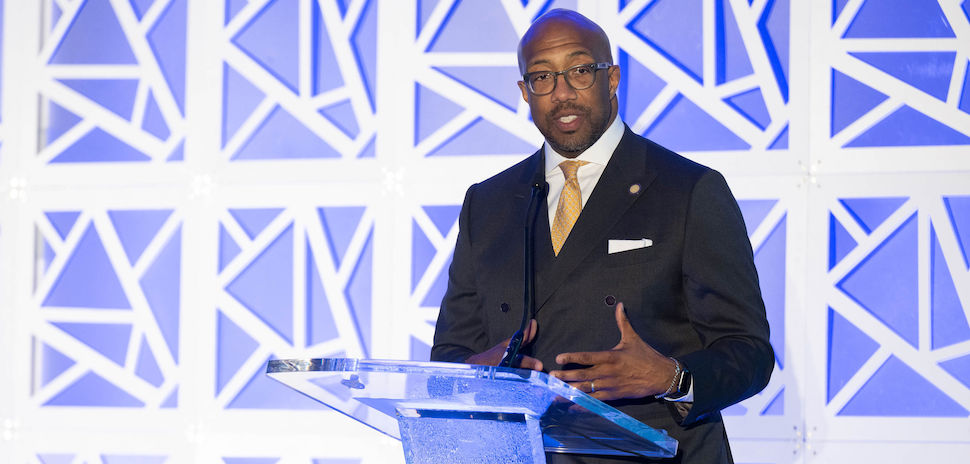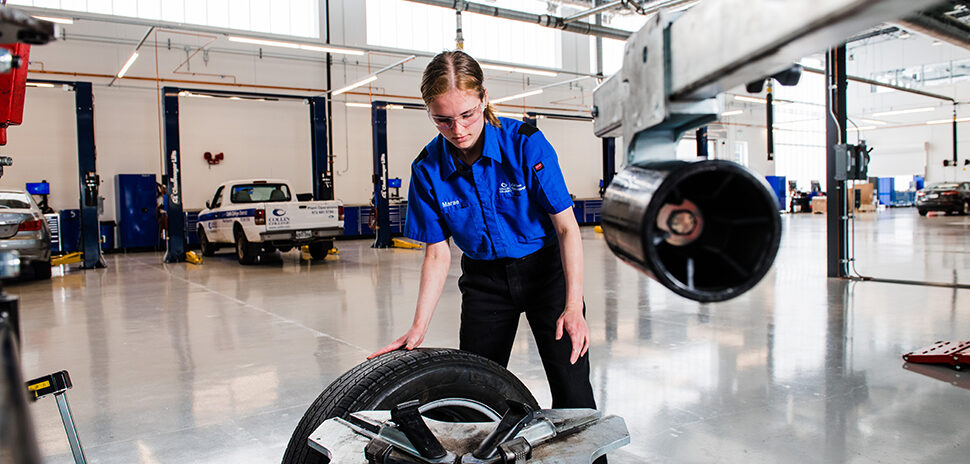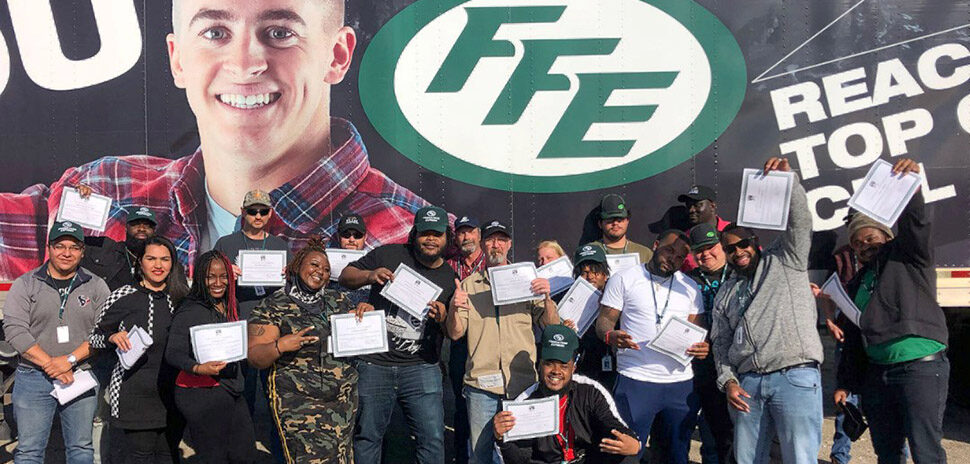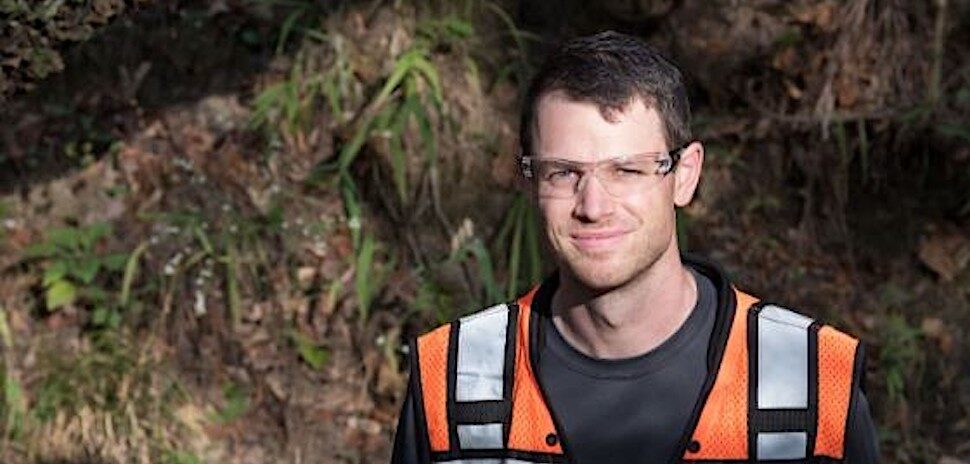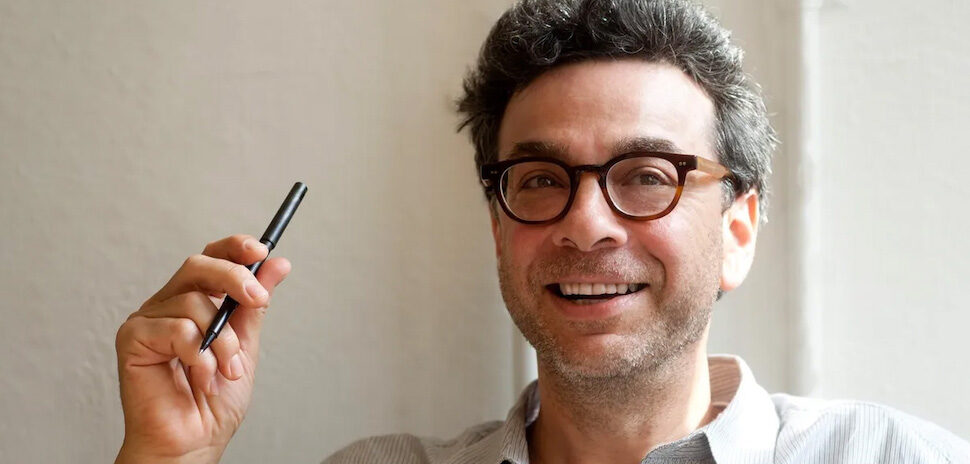Paul Quinn College President Michael Sorrell is on a mission to shatter the barriers that stand in the way of equal opportunity and access to education.
The longest-running president in the collage’s 150-year history, Sorrell believes that education has the power to change lives and create a more inclusive and equitable society. The Collin County Business Alliance recently honored the leader with the 2022 Collin County Leadership award, recognizing the innovative administrator for his leadership and service to the region.
In accepting the award, Sorrell relayed a message of opportunity and inclusion that transcends geographic regions and economic backgrounds.
The award joins many others that Sorrell has received in recent years for his leadership of the historically black college near downtown Dallas. Sorrell is the 11th recipient of the award from the alliance, which focuses on growth in Collin County.
Sorrell was introduced by Sanjiv Yajnik, president of Capital One’s Plano-based Financial Services Division, at the CCBA’s annual luncheon.
Sorrell’s college opened an Urban Work College in Plano in 2018
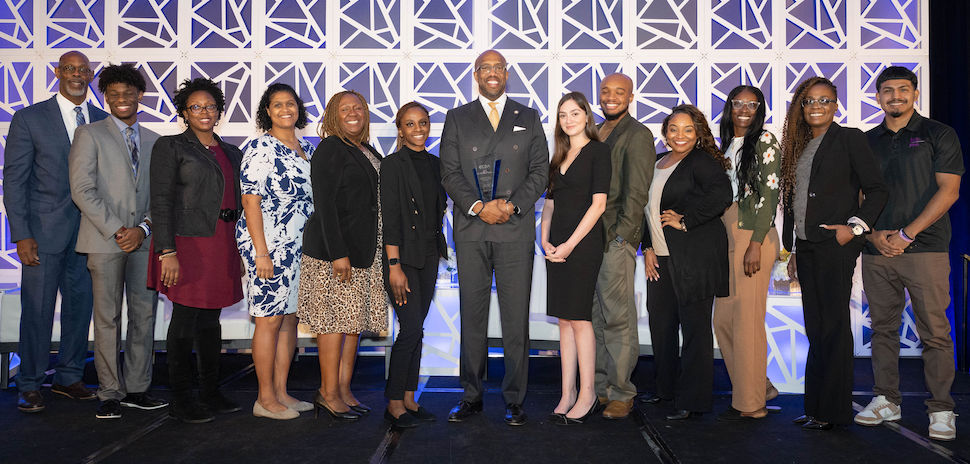
President Michael Sorrell at center with Paul Quinn College students and staff. [Photo: Grant Miller Photography]
Paul Quinn College opened the inaugural site of its Urban Work College Network in Plano in 2018, bringing the college’s innovative work-study program to a second campus in the northern part of the Dallas-Fort Worth region.
“Dr. Sorrell is one of the most celebrated college presidents in America,” Yajnik told the audience. “He has received many honors including the President George W. Bush Institute’s Trailblazer Citation; being named one of the World’s 50 Greatest Leaders by Fortune Magazine; winning Education Dive’s Higher Education’s President of the Year award; being the only three-time recipient of the HBCU Male President of the Year Award; and having been listed by Time Magazine as one of the ’31 People Changing the South.'”
Accomplishments and breakthroughs
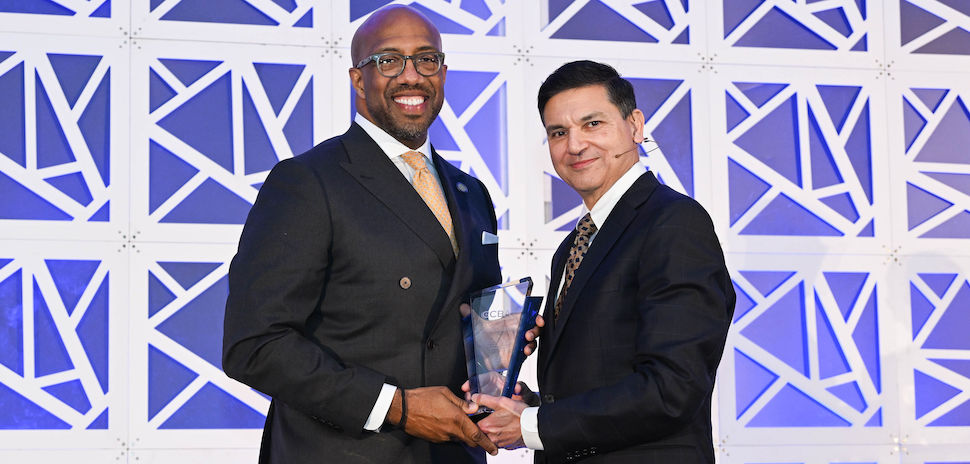
Paul Quinn College President Michael Sorrell accepts award from Capital One’s Sanjiv Yajnik at the annual CCBA luncheon. [Photo: Grant Miller Photography]
Sorrell is the longest-serving president in the college’s 150-year history. During his 15 years of leadership, Paul Quinn has become nationally celebrated for expanding the boundaries of higher education to better serve the needs of under-resourced communities and their students, Yajnik said.
Sorrell’s accomplishments touted by Yajnik include:
- Improving the graduation rate by 25%,
- Reducing student loan debt by roughly $30,000 per student
- Winning the HBCU of the Year Award
- Transforming the college/s football field to a “we-over-me” farm, benefitting the community near the downtown campus.
Sorrell’s accomplishments have translated into more success for his college and his students.
Yajnik: ‘Learning doesn’t only happen in the classroom’
“It is through an urban work college model. Students come in, they study, but through the college, they get an opportunity to work inside/outside the college, in the community,” Yajnik said. “I think that is just brilliant, because we all know that all the learning doesn’t only happen in the classroom.”
Sorrell told the audience that Collin County has become an important piece in Paul Quinn College’s plan for the future.
‘Welcomed with open arms’
“When we first announced that we were going to open up an expansion campus in Collin County and Plano, people looked at me and they were like, ‘You know you’re a Black college, right?’” Sorrell told the audience. “And what they meant in a very not-so-subtle way is that there wasn’t a place for us out here. And let me tell you how wrong they were. We have been welcomed here with open arms. Our students have been welcomed. And what was so important about the way you have welcomed them is it allowed them to see themselves differently from the way in which they have been taught to see themselves.”
Sorrell said that Collin County embraced his college and students in the right way to help the local communities and help the college grow.
“75% of our students come from pure Black backgrounds. They come from families where the American Dream has not worked spectacularly well for them,” Sorrell said. “Collin County is a place where the American Dream is working exceptionally well—so well that you had the capacity to open your arms to a group of students and an institution that hasn’t always been served well in that way. And you did it without pandering, you did it without making anyone feel as if they were some exception. You did it the right way because it is simply who you are. And we tell your story everywhere we go. Because we’re opening up expansion campuses all over the country.”
Aiming to create a ‘global network’ of Urban Work colleges
Sorrell said that the college’s goal is to create a global network of urban work colleges that take aim at intergenerational poverty and “smash it because we understand something very, very basic.”
“Some people will tell you that education cures intergenerational poverty,” Sorrell said. “With all due respect, money cures intergenerational poverty. So, the more money you have, the more opportunities you can create. And you all understand that.”
After asking his staff and students present at the luncheon to stand, Sorrell made a request.
“The reason I’m asking them to stand up is because they’re going to come see you. And they’re going to come see you and talk to you about hiring students to work at your companies,” Sorrell said. “And I want everyone to practice this with me: ‘Yes.’ Please say yes. Say yes not because you think you’re doing some public service, say yes because you understand that we have talent that you want to have access to.”
Founded 11 years ago, Collin County Business Alliance engages business leaders and fosters collaboration with stakeholders to drive regional impact in key areas ensuring the vibrancy of the county’s communities’ futures.
Maddie Preston contributed to this report. The story was updated on December 16, 2022 with additional details about Dr. Sorrell’s mission to empower communities and students.
![]()
Get on the list.
Dallas Innovates, every day.
Sign up to keep your eye on what’s new and next in Dallas-Fort Worth, every day.










